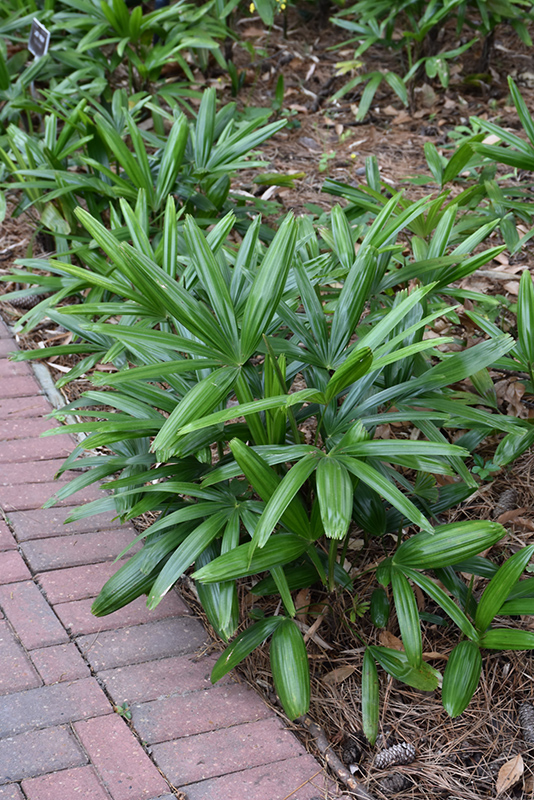Height: 6 feet
Spread: 4 feet
Sunlight:
![]()
![]()
Other Names: Bamboo Palm
Description:
A graceful, slow growing palm that forms a dense cluster of slender, bamboo-like canes presenting deeply divided, fan shaped leaves; great in containers and makes an excellent house plant; avoid direct sun and frost
Features & Attributes
Lady Palm's attractive deeply cut lobed palmate leaves remain green in color throughout the year on a plant with an upright spreading habit of growth.
This is a multi-stemmed evergreen houseplant with an upright spreading habit of growth. Its relatively coarse texture stands it apart from other indoor plants with finer foliage. This plant can be pruned at any time to keep it looking its best.
Planting & Growing
When grown indoors, Lady Palm can be expected to grow to be about 6 feet tall at maturity, with a spread of 4 feet. It grows at a slow rate, and under ideal conditions can be expected to live for approximately 40 years. This houseplant performs well in both bright or indirect sunlight and strong artificial light, and can therefore be situated in almost any well-lit room or location. It does best in average to evenly moist soil, but will not tolerate standing water. The surface of the soil shouldn't be allowed to dry out completely, and so you should expect to water this plant once and possibly even twice each week. Be aware that your particular watering schedule may vary depending on its location in the room, the pot size, plant size and other conditions; if in doubt, ask one of our experts in the store for advice. It is not particular as to soil type or pH; an average potting soil should work just fine.
There are many factors that will affect the ultimate height, spread and overall performance of a plant when grown indoors; among them, the size of the pot it's growing in, the amount of light it receives, watering frequency, the pruning regimen and repotting schedule. Use the information described here as a guideline only; individual performance can and will vary. Please contact the store to speak with one of our experts if you are interested in further details concerning recommendations on pot size, watering, pruning, repotting, etc.
-- THIS IS A HOUSEPLANT AND IS NOT MEANT TO SURVIVE THE WINTER OUTDOORS IN OUR CLIMATE --

